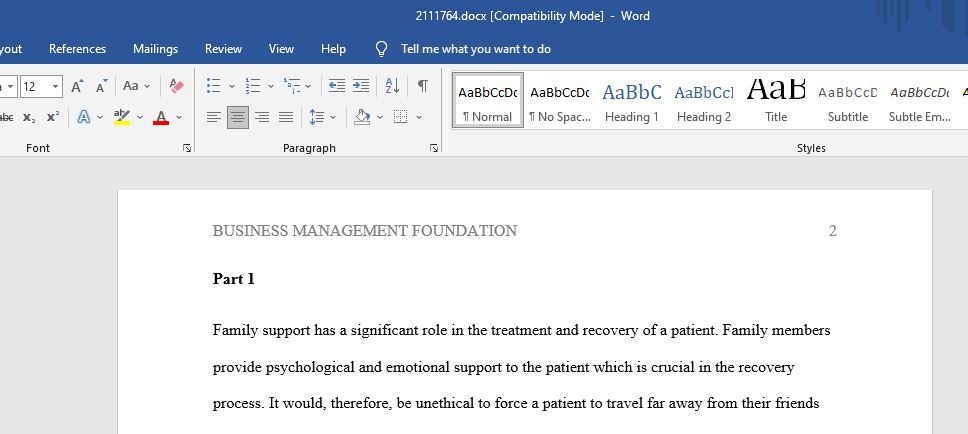Would it be ethical to separate patients from friends and family in a time of crisis in order to save money?
Part 1
The Affordable Care Act (ACA) may bring some relief to astronomical insurance costs. But as premiums continue to rise at home, overseas in countries like Thailand, Colombia, and India, health care is not only affordable, it’s also high quality. For instance, in the United States it would cost Patrick Follett, an avid skier, at least $65,000 for his hip replacement surgery. Unlike some Americans, Follett had medical insurance and would have part of the procedure covered. However, it would have still cost him at least $10,000 out-of-pocket. Follett, like 1.6 million other Americans, started looking for treatment elsewhere. In March of 2012, he underwent surgery in Mexico and was back on the California ski slopes in March of 2013. His total bill: $10,000, all of which was covered by his company. Right now, few American companies include medical tourism in their health care plans, but some of the larger companies like Aetna and WellPoint are working with companies to include international coverage. It’s even expected to become a booming industry with worldwide annual growth estimated between 20 and 30 percent.
Q1. Would it be ethical to force patients to travel thousands of miles and be separated from friends and family in a time of crisis in order to save money?
Part 2
Please answer the following questions.
1. Which is worse?
A. Hurting someone’s feelings by telling the truth.
B. Telling a lie and protecting someone’s feelings.
2. Which is the worse mistake?
A. To make exceptions too freely.
B. To apply rules too rigidly.
3. Which is it worse to be?
A. Unmerciful.
B. Unfair.
4. Which is worse?
A. Stealing something valuable from someone for no good reason.
B. Breaking a promise to a friend for no good reason.
5. Which is it better to be?
A. Just and fair.
B. Sympathetic and feeling.
6. Which is worse?
A. Not helping someone in trouble.
B. Being unfair to someone by playing favorites.
7. In making a decision you rely more on
A. Hard facts.
B. Personal feelings and intuition.
8. Your boss orders you to do something that will hurt someone. If you carry out the order, have you actually done anything wrong?
A. Yes.
B. No.
9. Which is more important in determining whether an action is right or wrong?
A. Whether anyone actually gets hurt.
B. Whether a rule, law, commandment, or moral principle is broken.
The answers fall in one of two categories, J or C. Count your number of J and C answers using this key:
1. A = C, B = J
2. A = J, B = C
3. A = C, B = J
4. A = J, B = C
5. A = J, B = C
6. A = C, B = J
7. A = J, B =C
8. A = C, B = J
9. A = C, B = J
What your score means: The higher your J score, the more you rely on an ethic of justice. The higher your C score, the more you prefer an ethic of care. Neither style is better than the other, but they are different. Because they appear so different, they may seem opposed to one another, but they’re actually complementary. In fact, your score probably shows you rely on each style to a greater or lesser degree. (Few people end up with a score of 9 to 0.) The more you can appreciate both approaches, the better you’ll be able to resolve ethical dilemmas and to understand and communicate with people who prefer the other style. An ethic of justice is based on principles like justice, fairness, equality, or authority. People who prefer this style see ethical dilemmas as conflicts of rights that can be solved by the impartial application of some general principle. The advantage of this approach is that it looks at a problem logically and impartially. People with this style try to be objective and fair, hoping to make a decision according to some standard that’s higher than any specific individual’s interests. The disadvantage of this approach is that people who rely on it might lose sight of the immediate interests of particular individuals. They may unintentionally ride roughshod over the people around them in favor of some abstract ideal or policy. This style is more common for men than women. An ethic of care is based on a sense of responsibility to reduce actual harm or suffering. People who prefer this style see moral dilemmas as conflicts of duties or responsibilities. They believe that solutions must be tailored to the special details of individual circumstances. They tend to feel constrained by policies that are supposed to be enforced without exception. The advantage of this approach is that it is responsive to immediate suffering and harm. The disadvantage is that, when carried to an extreme, this style can produce decisions that seem not simply subjective, but arbitrary. This style is more common for women than men. To learn more about these styles and how they might relate to gender, go to www.ethicsandbusiness .org/kgl.htm.
Answer preview:
Part 1

Words: 284
